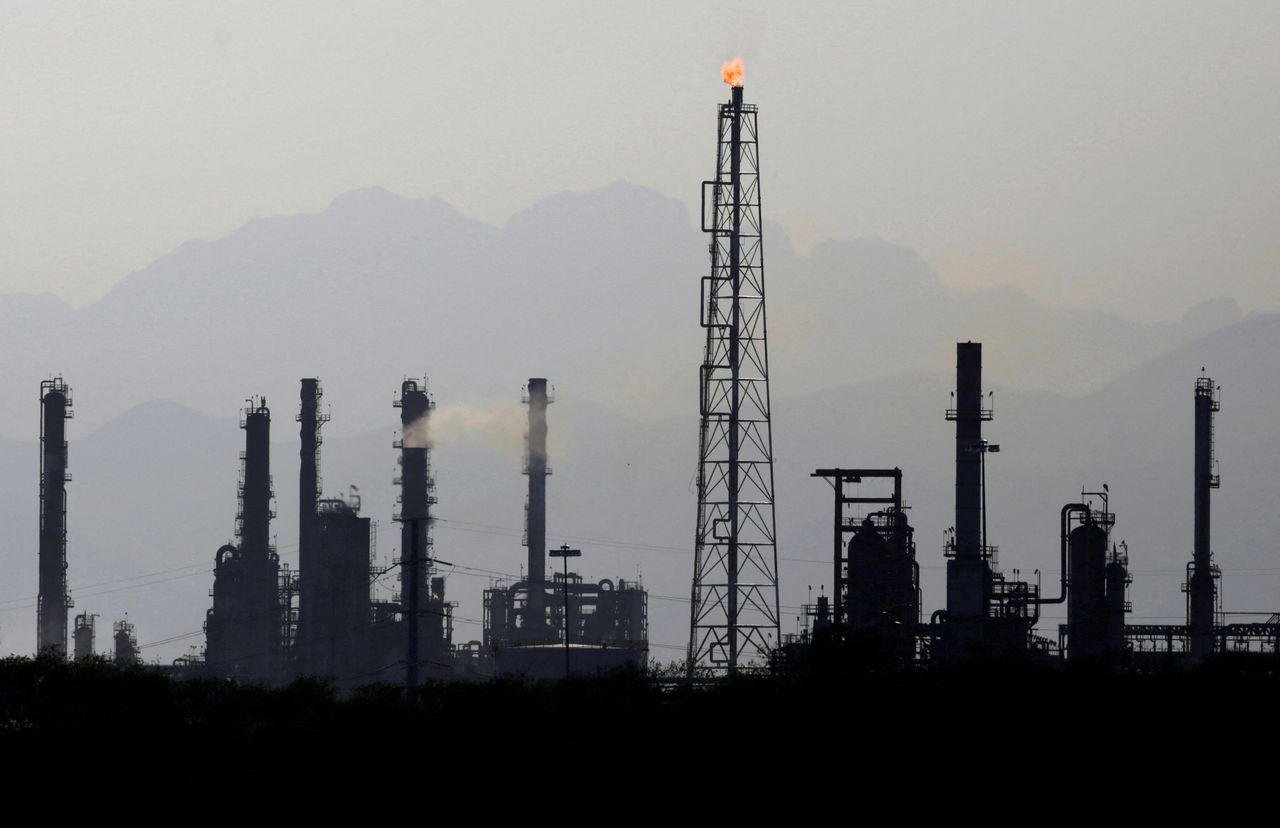Oil prices post biggest weekly gain since August
Newsfrom Japan
- English
- 日本語
- 简体字
- 繁體字
- Français
- Español
- العربية
- Русский

FILE PHOTO: General view shows Mexican state oil firm Pemex's Cadereyta refinery, in Cadereyta, on the outskirts of Monterrey, Mexico April 20, 2020. REUTERS/Daniel Becerril/File Photo
By Jessica Resnick-Ault
NEW YORK (Reuters) -Oil prices rose slightly on Friday and posted their biggest weekly gain since late August, with market sentiment buoyed by easing concerns over the Omicron coronavirus variant's impact on global economic growth and fuel demand.
The Brent and U.S. West Texas Intermediate (WTI) crude benchmarks each posted gains of about 8% this week, their first weekly gain in seven, even after a brief bout of profit-taking.
Brent futures settled up 73 cents, or 1%, at $75.15 a barrel, after falling 1.9% on Thursday.
WTI rose 73 cents, or 1%, to $71.67 after sliding 2% in a volatile session the previous day.
"Oil traders are coming out of their shell-shock and feeling more bullish as they recalibrate their demand expectations in the aftermath of the Omicron variation of the coronavirus," said Phil Flynn, senior analyst price futures group in Chicago.
U.S. consumer prices rose further in November to produce the largest year-on-year rise since 1982, government data showed, adding to bullish sentiment on oil demand.
Earlier in the week the oil market had recovered about half the losses suffered since the Omicron outbreak on Nov. 25, with prices lifted by early studies suggesting that three doses of Pfizer's COVID-19 vaccine offers protection against the Omicron variant.
"The oil market has thus rightly priced out the 'worst-case scenario' again, but it would be well-advised to leave a certain residual risk to oil demand in place," said Commerzbank analyst Carsten Fritsch.
Keeping a lid on prices are faltering domestic air traffic in China, owing to tighter travel restrictions, and weaker consumer confidence after repeated small outbreaks.
Ratings agency Fitch downgraded property developers China Evergrande Group and Kaisa Group, saying they had defaulted on offshore bonds.
That reinforced fears of a potential slowdown in China's property sector, as well as the broader economy of the world's biggest oil importer.
(Additional reporting by and Shadia Nasralla in London, Sonali Paul in Melbourne and Muyu Xu in BeijingEditing by David Goodman and Edmund Klamann)
(c) Copyright Thomson Reuters 2021. Click For Restrictions -
https://agency.reuters.com/en/copyright.html
Reuters United States Europe Middle East US United Kingdom UK